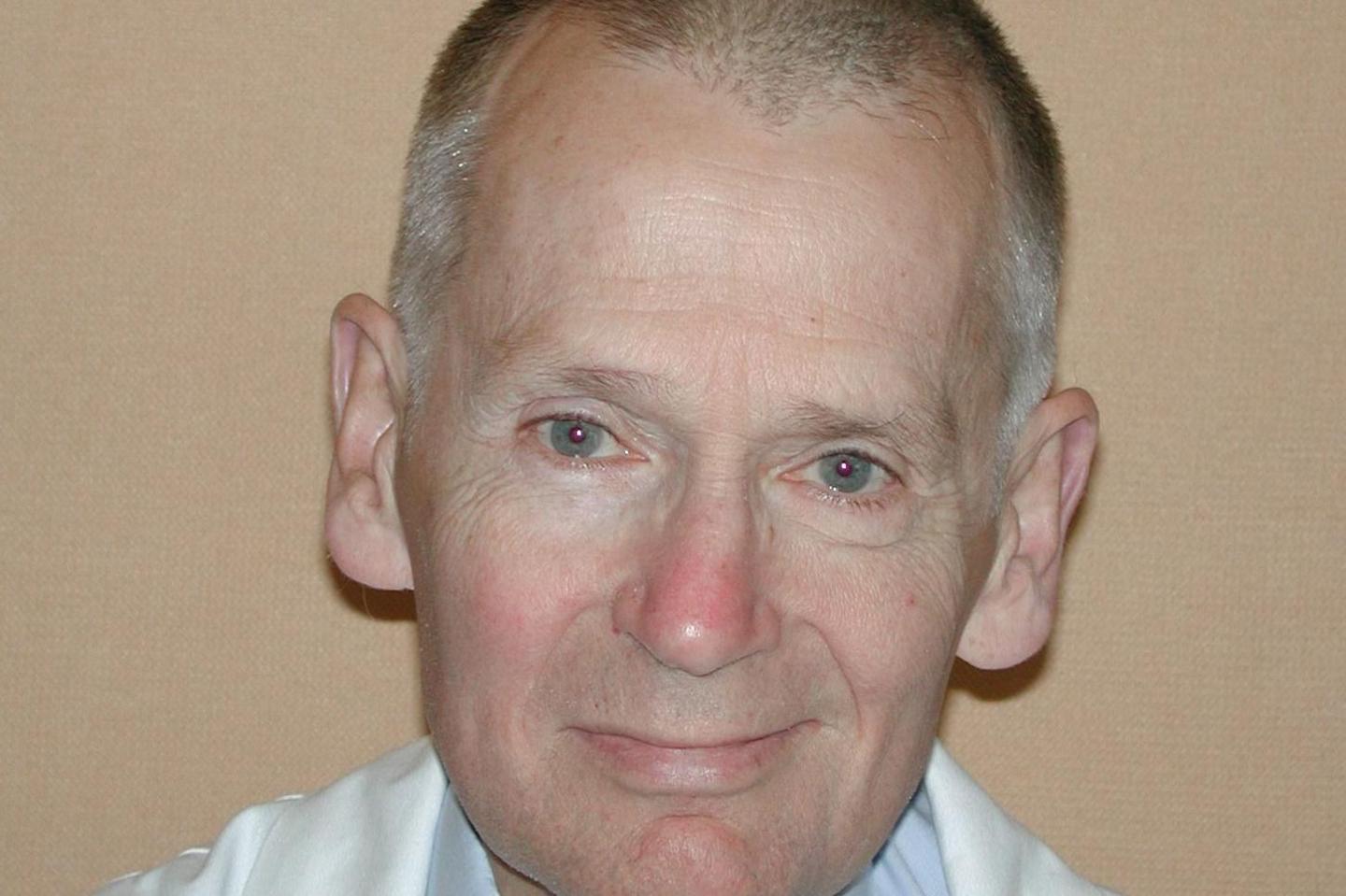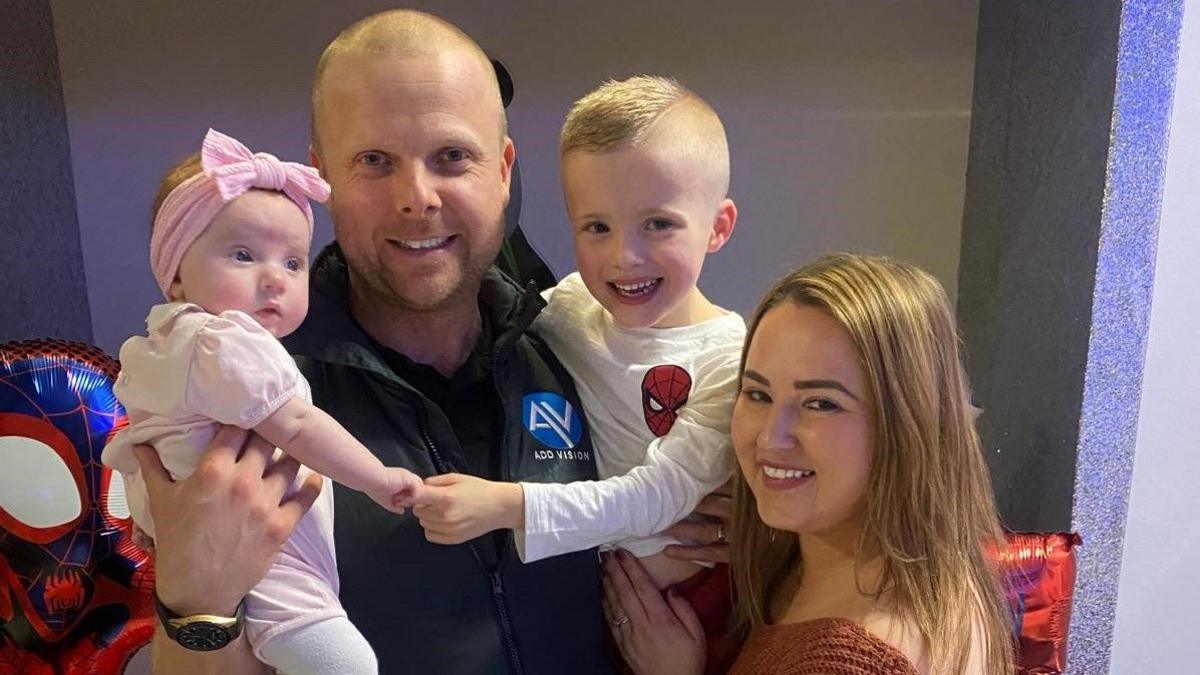Tributes to doctor who left 'extraordinary legacy'

Prof Chris Redman was a world renowned pioneer in maternity care
- Published
Friends and colleagues have been speaking to the BBC about the lasting legacy of a professor whose ground-breaking work saved the lives of mothers and their babies.
Prof Chris Redman was a world renowned pioneer in maternity care, making breakthroughs in cases concerning pre-eclampsia at the John Radcliffe Hospital.
He set up a dedicated maternal medicine department known as the Silver Star Unit, and the model has been replicated worldwide.
The unit cares for about 500 women a year.
'An incredible man'
Prof Redman, who died on 13 August aged 82, originally came to Oxford to conduct a trial on managing hypertensive pregnancies in the 1970s.
Its success led to him taking over the care of mothers with pregnancy-related medical issues.
He conducted influential research into pre-eclampsia, a condition that affects some pregnant women during the second half of pregnancy, external and can lead to babies being born prematurely or affect their growth in the womb.
In rare cases the mother can develop fits known as "eclampsia" which can be life threatening for the mother and baby.
He also co-founded the Dawes-Redman system, which analyses foetal heart rate before labour and allows early detection of distress so doctors can intervene if necessary.
The Silver Star Unit itself was named after the stickers he would use to highlight high risk patients so he could find them among his copious notes.
Author Clare Mackintosh described the professor as an "an incredible man".
She gave birth to twins prematurely in 2006, and when she had another twin pregnancy the following year she was referred to the Silver Star Unit as very high risk.
She said she delivered her twins successfully "only because of the incredible work done by the Silver Star Unit and Prof Redman" and the children were "now 17 and causing me all sorts of headaches in the nicest possible way".

The Silver Star Unit cares for about 500 women a year
She added: "What I keep thinking when I think about Prof Redman is the ripple effect of what he’s done, because it’s not just that individual baby, that individual set of parents, it’s the children that those babies may go on to have, and the grandchildren those babies will go on to have.
"This is an extraordinary legacy that he’s created if you think about how many people are involved in one baby's life; the siblings, the aunts, the uncles, the friends, the neighbours, the people they will go on to influence."
Film director Armando Iannucci told the BBC: "I now have a 31-year-old, a 25-year-old, and a 22-year-old, so all I can say is thank you."
The creator of hit shows I'm Alan Partridge and The Thick of It, who is a former patron of the unit, said: "When you go to the fundraisers and see all the other families you realise ‘oh it’s not just us, there are hundreds of us, thousands of us, probably tens of thousands of us.'"

The Silver Star Unit was named after the stickers Prof Redman used to highlight high risk patients in his notes
He described Prof Redman as a "very quiet man but you could see him beaming in the background" at the functions.
"It was very hard to get a photo of him," he recalled.
"He doesn’t want to be centre of attention, he thinks the mums, the dads and the children are what should be front and centre."
Manu Vatish, a consultant obstetrician who worked with the professor for many years, said called him a "strong and intellectual man, so precise".
"The range of things he’d done in so many spheres were world-leading."
He added: "He never looked at the mum as just the mum, he looked at the mum as a mum and baby, and that drove the clinical research. But his questioning mind was always: ‘Can I get to the bottom of this?’"
In 1988 a group of parents set up the Silver Star Society, now known as the Silver Star Maternity Fund, to raise funds for the unit and his research work.
Maggie Findlay, who works for the fund, believes it has raised more than a million pounds.
"He made patients that thought they’d never be mothers into mothers and that legacy will live on," she said.
"He set the gold standard for maternity care here in Oxford and that’s been shared and replicated all over the world.
"He was so caring towards his patients, they always came first, and he was just a wonderful man."
Get in touch
Do you have a story BBC Oxfordshire should cover?
You can follow BBC Oxfordshire on Facebook, external, X (Twitter), external, or Instagram, external.
Related links
- Published29 August 2024

- Published18 January 2024
